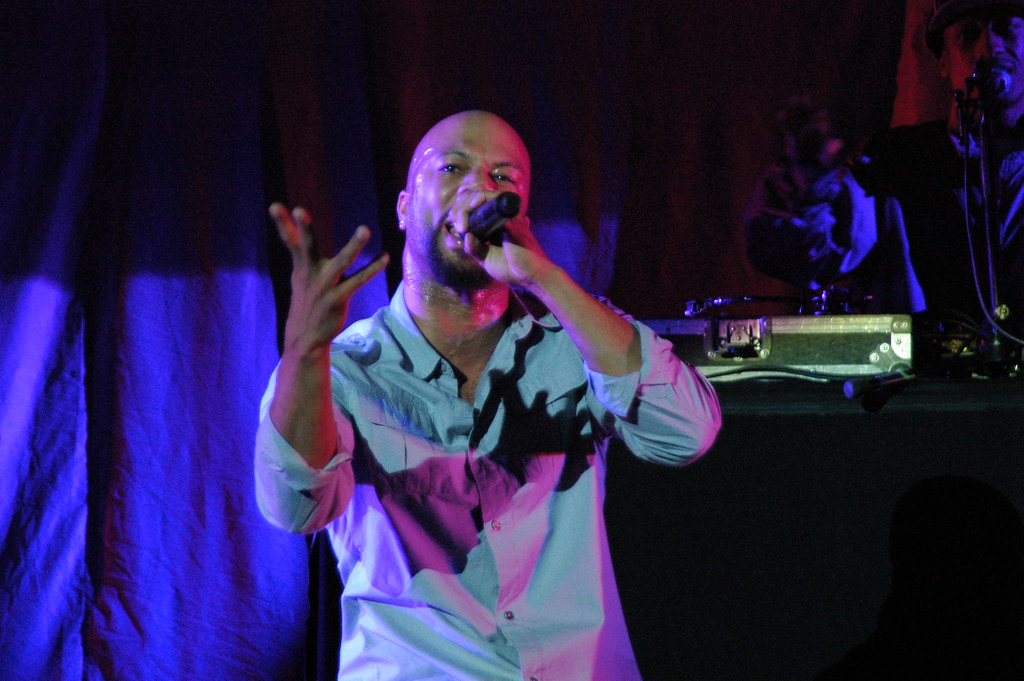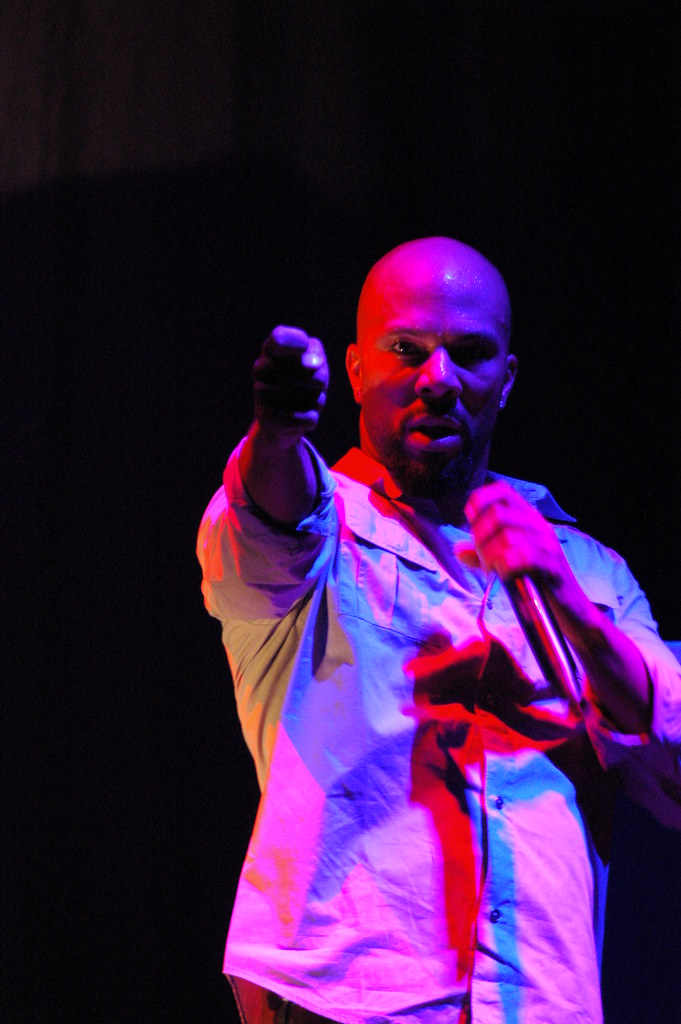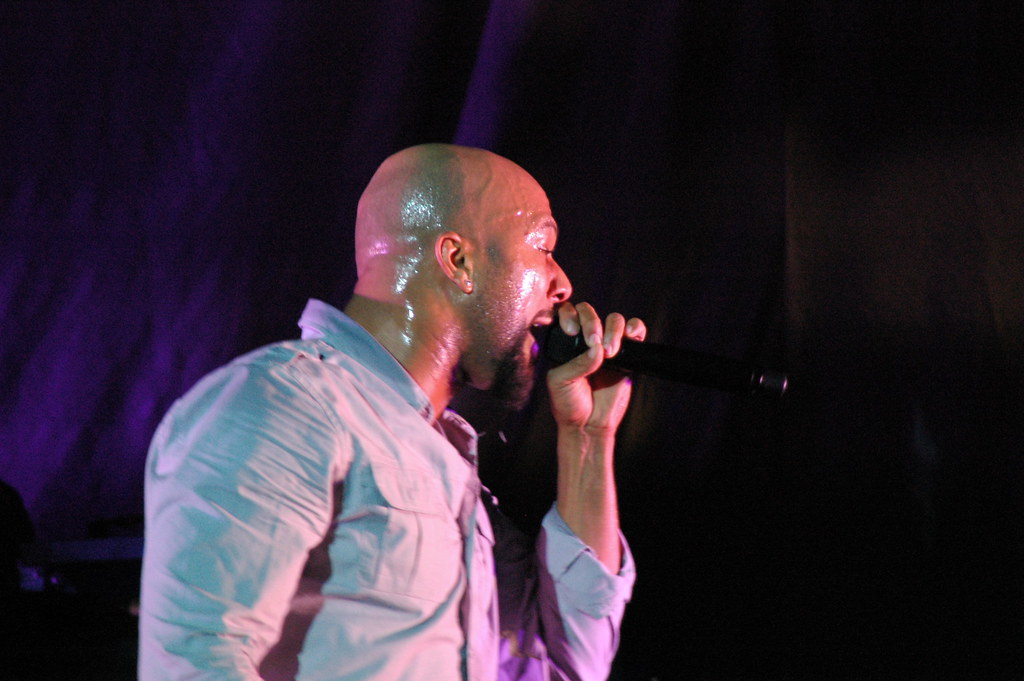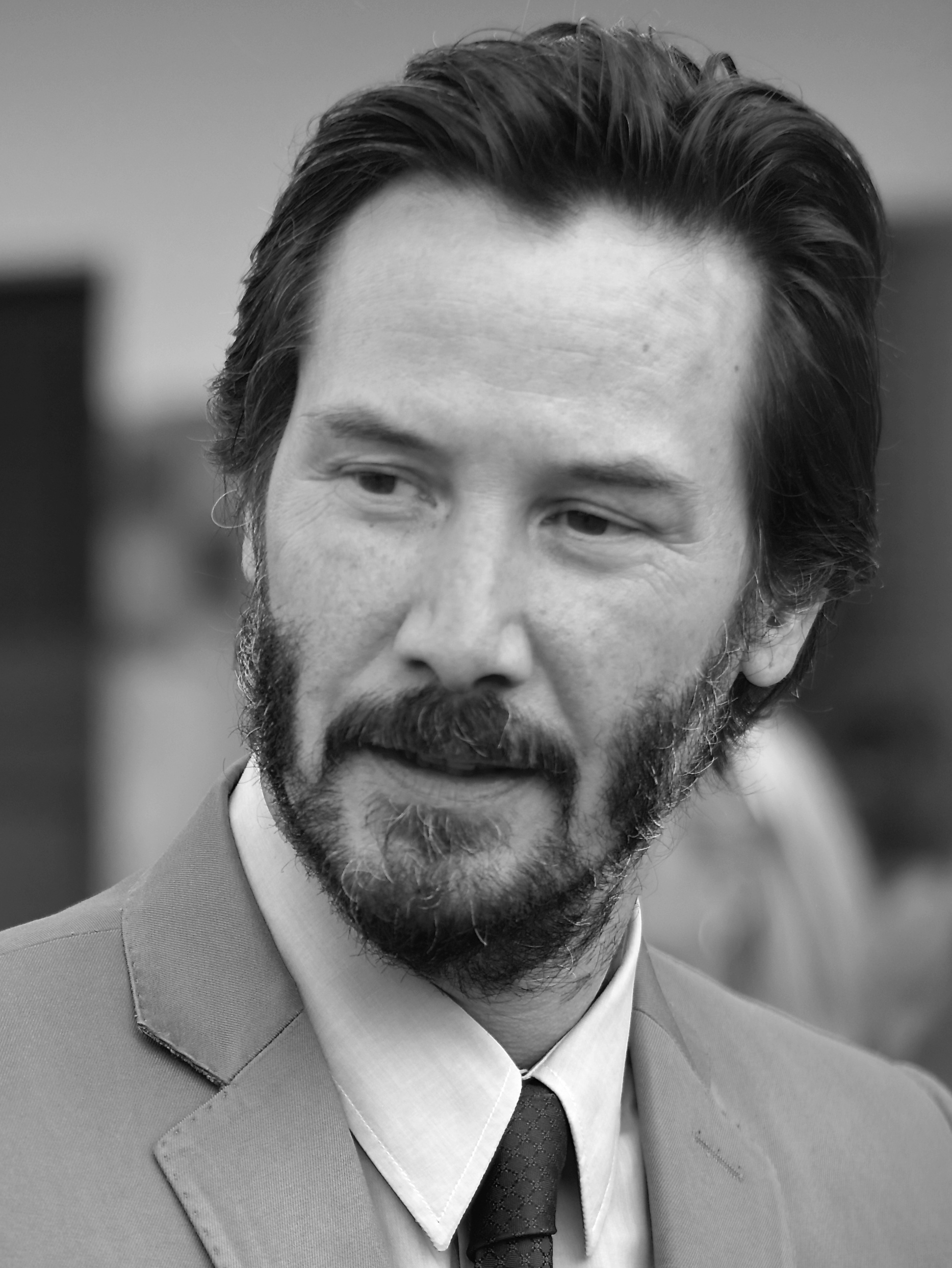
Common, born Lonnie Rashid Lynn, isn’t just a name you hear; he’s a phenomenon. From his humble beginnings in Chicago to becoming an Academy Award-winning artist, a celebrated actor, and a powerful voice for social justice, his journey is a testament to unwavering dedication and continuous evolution. In an era where celebrity often feels fleeting, Common has cultivated a career marked by authenticity, artistic integrity, and a profound commitment to his craft and community.
Often, we see artists pigeonholed into a single category, but Common shatters these narrow perceptions. His story is a masterclass in how to build a lasting legacy, not by rigidly adhering to one path, but by embracing growth, challenging personal boundaries, and consistently delivering meaningful work across multiple disciplines. This article will take a deep dive into the foundational elements of his remarkable journey, offering insights into the pivotal moments and artistic choices that have defined his enduring impact.
Get ready to explore the multifaceted layers of Lonnie Rashid Lynn’s career, moving beyond casual observations to truly appreciate the depth and breadth of his contributions. We’ll trace his steps from early aspirations to securing his place as one of the most respected figures in contemporary culture, armed with practical insights from his journey that can inspire anyone seeking to make a significant mark.

1. **Early Life and Education: Roots in Chicago and Formative Influences**Lonnie Rashid Lynn, known to the world as Common, entered the world on March 13, 1972, at the Chicago Osteopathic Hospital, nestled in the vibrant Hyde Park neighborhood of Chicago. His roots run deep in the city, providing a rich backdrop for his artistic development. This early environment, far from the glitz of Hollywood or the roar of concert venues, was foundational in shaping the grounded perspective that would define his later work.
His family background offered a compelling mix of influences. Lynn is the son of Mahalia Ann Hines, an esteemed educator and former principal of John Hope College Preparatory High School. His father, Lonnie Lynn, was a former ABA basketball player who later became a youth counselor, showcasing a blend of academic rigor and athletic prowess within his immediate family. This combination undoubtedly instilled in him a diverse set of values and an appreciation for both intellectual and physical pursuits.
Interestingly, Lynn shares his first name with his father, grandfather, great-grandfather, and great-great-grandfather, a testament to a strong lineage and a sense of continuity. Yet, to his closest circle of family and friends, he is affectionately known by his middle name, Rashid. Basketball also played an early, indirect role in his life, as his godfather is the renowned basketball player Spencer Haywood, who was a teammate of his father on the Denver Rockets.
Lynn’s childhood in the Calumet Heights neighborhood wasn’t without its challenges. His parents divorced when he was six years old, and his father moved to Denver, Colorado, due to drug and alcohol addictions, leaving Lynn to be raised by his mother. Despite this separation, his father remained an active presence in his life, even helping him secure a job with the Chicago Bulls as a teenager. This early exposure to the Bulls, coupled with his brief stint at Florida A&M University (FAMU) for two years on a scholarship, majoring in business administration, highlights the practical ambition woven into his early trajectory, long before music became his primary focus.

2. **Career Beginnings: From C.D.R. to Common Sense and “Resurrection”**Common’s musical journey didn’t begin with immediate solo stardom; it evolved through foundational experiences rooted in the late 1980s. While a student at Luther High School South in Chicago, he first dipped his toes into the burgeoning hip-hop scene, forming a rap trio called C.D.R. alongside two friends. This early group wasn’t just a casual pastime; they managed to open for significant acts like N.W.A and Big Daddy Kane, providing Lynn with invaluable early exposure to the professional music landscape and the demands of live performance.
By 1991, C.D.R. dissolved, paving the way for Lynn’s solo aspirations. He adopted the stage name Common Sense, a moniker that perfectly encapsulated the thoughtful, introspective lyrical style he was beginning to cultivate. His talent quickly garnered attention, leading to a feature in the prestigious Unsigned Hype column of *The Source* magazine, a significant benchmark for emerging hip-hop artists at the time. This recognition propelled him towards his official solo debut in 1992 with the single “Take It EZ,” soon followed by his inaugural album, *Can I Borrow a Dollar?*.
However, it was the 1994 release of *Resurrection* that truly marked a turning point, earning Common Sense a “much larger degree of critical acclaim which extended beyond the Chicago music scene.” This album didn’t just sell “relatively well” for an artist still building his base; it “received a strong positive reaction among alternative and underground hip hop fans at the time.” The success of *Resurrection* solidified his reputation as a formidable lyricist and cemented his distinct voice in the hip-hop community.
*Resurrection* also stands out as Common Sense’s “last album produced almost entirely by his long-time production partner, No I.D.,” a figure who would later become a pivotal mentor to a young Kanye West. This album was a testament to their potent creative synergy, laying groundwork for future hip-hop titans. Furthermore, the album contained the seminal track “I Used to Love H.E.R.,” a song that critically examined the evolving landscape of hip hop music, using a metaphor of a woman to convey hip hop. This thought-provoking commentary ignited a notable feud with West Coast rap group Westside Connection, demonstrating Common’s willingness to engage in artistic dialogue, even when it sparked controversy.

3. **The Name Change and “One Day It’ll All Make Sense”: Personal Growth and Critical Acclaim**The rising popularity of *Resurrection* brought with it an unexpected challenge that forced a significant rebranding for the artist. Following the album’s success, Common Sense was “sued by an Orange County-based reggae band with the same name.” This legal dispute necessitated a change, compelling the rapper to “shorten his moniker to simply Common.” This seemingly minor adjustment in his stage name marked a new phase, shedding the “Sense” but retaining the core identity that fans had come to appreciate.
In the midst of this professional transition, Common was also undergoing profound personal transformations. His third album, *One Day It’ll All Make Sense*, though “initially scheduled for an October 1996 release,” eventually arrived in September 1997. This extended two-year production period allowed for a meticulous crafting of the record, which boasted collaborations with an impressive array of artists including Lauryn Hill, De La Soul, Q-Tip, Canibus, Black Thought, Chantay Savage, and Questlove, who would later become a fellow member of the influential Soulquarians collective.
The album consciously “made a point of eschewing any gangsterism,” a direct response to questions about his musical integrity and a clear statement of his artistic direction. This stance, coupled with its intricate lyrical depth and musicality, led to *One Day It’ll All Make Sense* being “critically acclaimed” and, crucially, securing him “a major label contract with MCA Records.” The album was a commercial and critical success, affirming his place as a thoughtful and influential voice in hip-hop.
Adding another layer of profound personal significance to this period, Common’s first child, daughter Omoye Assata Lynn, “was born shortly after the release of the album.” This momentous event had a “profound spiritual and mental effect on Common,” as documented by hip-hop journalist Raquel Cepeda in the liner notes. Cepeda observed that this experience “enabled him to grow musically while becoming more responsible as an artist,” directly influencing tracks like “Retrospect for Life,” a powerful composition offering “a male slant on abortion,” featuring Lauryn Hill. The album’s artwork, decorated with old family photos, further underscored the personal and ethical reflections that permeate the record, including a poignant quote from 1 Corinthians 13:11 summarizing his path to manhood.

4. **The Soulquarians Era: MCA Records, “Like Water for Chocolate,” and J Dilla Collaborations**With a major label deal from MCA Records in hand, Common made a pivotal move from Chicago to New York City in 1999, marking the beginning of a highly fertile creative period. This relocation immersed him in a vibrant artistic community, leading him to record “almost exclusively with a loose collective of musicians and artists (dubbed the “Soulquarians” by central figure Questlove) throughout 1999.” This collective, known for its genre-bending and deeply soulful approach to hip-hop and R&B, fostered an environment of unparalleled creativity, allowing Common to expand his musical horizons.
The fruits of this collaborative era were showcased in his fourth album, *Like Water for Chocolate*, released in 2000. This album was met with “mass critical acclaim,” a testament to its innovative sound and thoughtful lyricism. Executive produced by Questlove, the album also featured significant contributions from the legendary J Dilla, who “helmed every track except – ‘Cold Blooded’, ‘Geto Heaven Part II’, ‘A Song For Assata’, ‘Pop’s Rap Part 3…All My Children’ & the DJ Premier-produced track ‘The 6th Sense’.” This strong partnership with Dilla proved to be a defining characteristic of the album.
*Like Water for Chocolate* wasn’t just a critical darling; it “transpired to be a considerable commercial breakthrough for Common, earning the rapper his first gold record, and greatly expanding his fanbase among critics and listeners alike.” This period solidified his artistic integrity while simultaneously broadening his appeal, a rare feat in the music industry. The album’s themes were notably expansive, exploring subjects “uncommon for a hip-hop record,” such as on “Time Travelin’ (A Tribute To Fela),” a heartfelt homage to Nigerian music legend and political activist Fela Kuti.
The chemistry between Common and J Dilla, both hailing from the Great Lakes region (Chicago and Detroit), was undeniable. They not only collaborated extensively but also became core members of the Soulquarians collective. Their synergy was so strong that one song, “Thelonius,” appeared on both Slum Village’s *Fantastic, Vol. 2* and Common’s *Like Water for Chocolate*. This creative bond even extended to their personal lives, as Dilla, facing declining health from Lupus Nephritis, “asked Common to make the move with him as a roommate” to Los Angeles, highlighting the deep personal and professional connection between these two influential artists. The album’s most popular single, “The Light,” was deservedly nominated for a Grammy Award, marking a significant milestone in Common’s career.

5. **The “Electric Circus” Experiment: Ambitious Vision and Critical Division**Following the widespread success and critical adoration of *Like Water for Chocolate*, Common embarked on a bold new artistic direction with his fifth album, *Electric Circus*, released in 2002. This project arrived with “highly anticipated” expectations and was “praised by many critics for its ambitious vision.” It represented a deliberate departure from his previous sound, showcasing a willingness to experiment and push the boundaries of traditional hip-hop.
*Electric Circus* was a true fusion, featuring a blend of “several genres such as hip hop, pop, rock, electronic, and neo-soul.” This eclectic approach was a testament to Common’s evolving artistic curiosity and his desire to explore new sonic landscapes. The album’s experimental nature, however, proved to be a double-edged sword. While some critics “praised its ambitious vision,” others “criticized it for the same reason,” illustrating the divisive nature of such a progressive artistic statement.
Much of the critical debate around *Electric Circus* “tended to revolve around the album’s experimental nature; some felt Common had strayed too far from his previous sound.” This division ultimately impacted its commercial performance, as it was “not as commercially successful as his previous album, Like Water for Chocolate, selling under 300,000 copies.” Despite its modest sales, the album remains a crucial chapter in Common’s discography, showcasing his bravery in artistic exploration.
This period also marked the end of an era for Common at MCA, as *Electric Circus* was “his second and last album for MCA, and the label’s final release prior to its absorption into Geffen Records.” During this time, he also continued his collaborative spirit, appearing as a guest performer on fellow Soulquarian Bilal’s *Love for Sale* album, where he contributed to a remake of the 1977 Fela Kuti song “Sorrow, Tears & Blood.” Bilal, in turn, featured on *Electric Circus*, solidifying a creative bond that would lead to “many future collaborations” between the two artists.

6. **GOOD Music Partnership: Signing with Kanye West and the “Be” Album**The early 2000s ushered in a new and significant partnership for Common, one that would redefine his mainstream presence and critical reception. In early 2004, he made a notable appearance on “fellow Chicagoan Kanye West’s multi-platinum debut album, The College Dropout (on the song ‘Get Em High’),” an appearance that preceded a major career announcement. Soon after, Common officially “announced his signing to West’s then-newfound label GOOD Music,” a move that signaled a powerful collaboration between two of Chicago’s most respected hip-hop artists.
Kanye West, a long-time admirer of Common, had a history of engaging with him, even participating in a “friendly on-air MC battle, where West took jabs at his lyrical idol for ‘going soft’ and wearing crochet pants.” This playful rivalry underscored a deep mutual respect that would fuel their artistic endeavors. Their collaboration truly blossomed on Common’s next album, *Be*, which was “almost entirely produced by Kanye West, with some help from Common’s longtime collaborator James Yancey (J Dilla) – also a favorite of West.” This assembly of top-tier talent created an album that resonated widely.
Released in May 2005, *Be* was an immediate success, “performed very well, boosted by Kanye’s involvement and the singles ‘The Corner’, and ‘Go’.” The album marked a commercial resurgence for Common, “earned Common the second gold record of his career, with sales topping out at around 800,000 copies.” Critically, it was lauded, receiving a “near-perfect 4.5 mic rating” from *The Source* magazine, the highest “XXL” rating from *XXL* magazine, and “4 stars” from AllHipHop.
The album’s impactful nature was further underscored by its recognition at the highest level of the music industry; *Be* was “nominated for four Grammy Awards in 2006.” This period cemented Common’s renewed status as a powerhouse artist capable of both critical depth and commercial appeal, demonstrating the profound influence of strategic collaborations and a refined artistic direction under the guidance of a kindred spirit like Kanye West.

7. **”Finding Forever” and Grammy Wins: Continued Success and Award Recognition**Building on the momentum of *Be*, Common released his seventh LP, *Finding Forever*, on July 31, 2007, continuing his highly successful partnership with Kanye West. For this album, he “continued his work with Kanye West, as well as other producers such as Will.i.am, Devo Springsteen, Derrick Hodge, and Karriem Riggins.” The album also featured the “only J Dilla-produced track, ‘So Far To Go’,” a poignant inclusion following the producer’s passing, honoring their enduring creative bond.
*Finding Forever* showcased an impressive roster of guest artists, including Dwele, Bilal, D’Angelo, and UK pop starlet Lily Allen, adding diverse voices to Common’s evolving sound. The lead singles, “The People” b/w “The Game,” set the stage for an album that was poised for both critical and commercial success. Kanye West himself, recognizing the album’s strength, “predicted that Finding Forever would win the 2008 Grammy Award for Best Rap Album.”
While the album was indeed “nominated for Best Rap Album,” it ultimately “did not win, losing to West’s Graduation.” However, Common did not leave the 2008 Grammys empty-handed; he “did win his second Grammy for ‘Southside,’ which won the 2008 Grammy for Best Rap Performance by Duo or Group” (featuring Kanye West). This win further cemented his status as a celebrated artist with undeniable talent and widespread industry recognition.
To celebrate the album’s release, Common performed a “free concert in Santa Monica, California, on the 3rd Street Promenade” on July 31, 2007. During this performance, he elucidated the album’s title, explaining to the audience that “Finding Forever” represented “his quest to find an eternal place in hip-hop and also his wishes to be an artist for the rest of his life.” This deeply personal commitment resonated with fans, driving the album to debut impressively at “No. 1 on the national Billboard 200 charts,” marking a significant milestone and a powerful affirmation of his enduring appeal and artistic mission.
8. **Later Musical Evolution: Universal Mind Control to A Beautiful Revolution**Following the critical and commercial success of *Be* and *Finding Forever*, Common released *Universal Mind Control* in 2008. This album, his ‘final release with GOOD’ Music, ventured into electronic sounds and saw a ‘critical decline.’ It demonstrated his willingness to experiment, challenging audience expectations for his sound.
The 2010s marked Common’s move to independence, founding Think Common Entertainment in 2011. His ninth album, *The Dreamer/The Believer*, produced by No I.D., earned critical praise for its deep exploration of social issues. This solidified his role as a conscious voice in hip-hop.
This era included a brief lyrical exchange with Drake, sparked by Common’s track ‘Sweet.’ Common diffused the situation, calling it ‘all in the art of hip hop’ and expressing mutual respect. This showcased his mature approach, prioritizing artistic integrity over prolonged conflict.
Common continued this impactful work with *Black America Again* (2016), receiving ‘widespread critical acclaim’ and marking his ‘final release on a major label.’ Subsequent independent projects like *Let Love* (2019) and the *A Beautiful Revolution* series (2020, 2021) demonstrate his ongoing evolution and commitment to crafting resonant music.
Read more about: Prince: A Retrospective on the American Musician’s Monumental Life and Career

9. **Beyond Solo: Collaborative Projects and New Ventures**Common’s artistic curiosity frequently leads him into diverse collaborative projects, extending his influence beyond solo hip-hop. These partnerships enrich his sound and broaden his creative horizons, showcasing his versatility and willingness to push genre boundaries.
A significant venture into jazz began in 2018 with August Greene, a supergroup formed with Karriem Riggins and Robert Glasper. Their self-titled album, released via Amazon Music, proved Common’s seamless transition into different musical idioms. This solidified his reputation as an artist unbound by genre, constantly exploring new forms of expression.
His collaborative spirit also included guest appearances on high-profile projects, such as Kid Cudi’s influential debut, *Man on the Moon: The End of Day* (2009), and even The Jonas Brothers’ album. These appearances underscore his broad appeal and ability to engage with unexpected musical territories.
Common continues to forge new partnerships, exemplified by his upcoming 2024 album *The Auditorium Vol. 1* with legendary producer Pete Rock. This anticipated project has garnered a Grammy nomination and millions of streams. Such endeavors confirm his ongoing quest for innovation and commitment to crafting impactful music alongside respected peers.
Read more about: From Little Legends to Powerhouse Performers: The Iconic Child Stars Who Became Hollywood’s Awesome Character Actors

10. **Extensive Acting Career: From TV Cameos to Award-Winning Films**Common has meticulously built an acclaimed acting career, showcasing a versatile talent mirroring his musical prowess. His journey began with early 2000s TV appearances, including a slam poet role on *Girlfriends*, hinting at the charisma that would define his screen presence.
His big-screen debut in *Smokin’ Aces* (2006) quickly led to significant action roles in *American Gangster* (2007), *Wanted* (2008), *Street Kings* (2008), and *Terminator Salvation* (2009). Delivering compelling performances in high-profile films, he solidified his status as a capable dramatic actor across varied genres.
Common transitioned into diverse roles, from romantic comedies like *Just Wright* (2010) to his standout TV role as Elam Ferguson in AMC’s *Hell on Wheels* (2011-2014). This complex character portrayal showcased profound dramatic depth, earning critical recognition and significantly expanding his audience.
A career pinnacle arrived with *Selma* (2014), where he co-starred as James Bevel. His powerful performance, coupled with co-writing the Oscar-winning song ‘Glory’ with John Legend, secured him an Academy Award. This landmark achievement cemented his ability to integrate artistic and activist passions.
He remains a consistent presence in Hollywood, with roles in *John Wick: Chapter 2* (2017), *Suicide Squad* (2016), and the critically praised *All About Nina* (2018). Recently, Common made his Broadway debut in *Between Riverside and Crazy* (2022/2023) and has a supporting role in the Apple TV+ series `Silo` (since 2023). These roles confirm his versatility across film, television, and stage.

11. **Behind the Camera: Film Production and Creative Ventures**Common’s vision extends beyond performing; he actively ventures into film production, aiming to shape narratives from behind the camera. This strategic move aligns with his goal of fostering compelling storytelling and bringing meaningful projects to a wider audience, showcasing a holistic approach to his artistic career.
A significant milestone was his 2015 two-year deal with HBO, leading to the launch of his own film production company, Freedom Road Productions. This initiative fulfilled a long-standing career aspiration, providing a direct conduit to develop and produce content aligned with his artistic integrity and social consciousness.
His commitment to impactful production also saw him executive produce *An American Girl Story – Melody 1963: Love Has to Win* (2016) with Amazon Studios. This project, set during the Civil Rights Movement, underscores his dedication to creating stories both entertaining and historically significant, further solidifying his role as a multifaceted media figure.
Read more about: The Enduring Gravitas: Unpacking the Storied Life and Legacy of Tommy Lee Jones

12. **Fashion, Endorsements, and ‘Softwear’**Common’s influence robustly extends into fashion and brand endorsements. His distinctive style and authentic public persona make him a coveted partner, allowing him to connect with audiences through a different lens and highlighting his broad appeal and keen sense of personal branding.
Beginning in 2006, he modeled for The Gap’s fall collection and later partnered with New Era to promote their Layers fitted caps. These ventures established his presence in mainstream fashion, solidifying his image as a style influencer blending urban cool with sophisticated appeal.
His commercial engagements expanded into technology and automotive. Common featured in a 2008 Lincoln Navigator TV commercial and appeared in NBA 2K8. He starred in a Microsoft Zune ad, drawing clever parallels between his music and hip-hop pioneers. He also fronted the Diesel ‘Only The Brave’ fragrance campaign and had his song ‘Be (intro)’ used in a BlackBerry commercial.
An innovative fashion contribution was the 2008 launch of ‘Softwear,’ his clothing line in partnership with Microsoft. Inspired by 1980s computing aesthetics, this venture showcased his unique entrepreneurial approach, blending nostalgia with contemporary style.

13. **An Author and Activist: Penning Memoirs and Driving Change**Common’s deep commitment to social justice and personal reflection manifests powerfully through his work as an author and dedicated activist. He uses his platform to inspire, educate, and provoke thought, demonstrating that artistic expression can be a potent force for societal betterment, addressing profound human and ethical issues.
He published two acclaimed memoirs: *One Day It’ll All Make Sense* (2011), offering an intimate look at his life partially narrated by his mother, and *Let Love Have The Last Word* (2019), delving into his relationships and philosophy on love. These works provide profound insights into the experiences that shape his impactful artistry.
As an activist, Common champions numerous causes. A vegan, he advocates for animal rights, appearing in PETA campaigns. He actively supports HIV/AIDS awareness and endorsed Barack Obama’s presidential bid. His public pledge to cease using anti-gay lyrics exemplifies his dedication to inclusivity and fostering progressive social dialogue.
Common’s commitment to tangible change is institutionalized through the Common Ground Foundation, empowering underprivileged youth with leadership and educational programs. He also founded Imagine Justice, launching the #WeMatterToo campaign for incarcerated individuals. His participation in *#Bars4Justice*, March for Our Lives performances, and political campaign support underscore his unwavering dedication to justice and his role as a leading voice for a more equitable society.
14. **Personal Life, Honors, and Enduring Legacy**Beyond his public achievements, Common’s personal life profoundly informs his public persona, anchoring his contributions in authentic experiences. Lonnie Rashid Lynn lives by principles and convictions permeating his art and activism, offering a complete picture of an influential cultural figure.
His family, particularly daughter Omoye, remains central. Omoye’s 2022 graduation from Howard Law School demonstrates the family’s emphasis on education. Romantic relationships, including those with Tiffany Haddish and Jennifer Hudson, have been noted, contributing to personal insights shared in his memoirs, enriching his artistic exploration of human connection.
Common’s lifestyle choices directly extend his advocacy. His long-term veganism, aligning with animal rights, is a deeply personal and public conviction. Additionally, his lifelong fandom of Chicago sports teams and Christian faith ground him firmly in community and personal beliefs, showcasing a multifaceted identity.
Throughout his distinguished career, Common has received significant accolades beyond major industry awards. Florida A&M University (FAMU) awarded him an honorary DFA degree in 2019. In 2023, he was featured in *Men’s Health’s* Hip-Hop 50th Anniversary edition, solidifying his esteemed position among the genre’s most impactful figures.
Ultimately, Common’s legacy is defined by more than his impressive resume; it’s about sustained influence and inspiration. His journey exemplifies artistic integrity, intellectual curiosity, and an unyielding commitment to social justice. He doesn’t just entertain; he challenges, educates, and empowers, leaving an indelible mark on music, film, and society, demonstrating that art, when wielded with purpose, can indeed drive a beautiful and lasting revolution.
Read more about: This Is How You Live Your Best Life for a Century (Or More!): 14 Celebs Who Rocked Their 90s & 100s Like Absolute Legends!
This deep dive into Common’s remarkable journey, from Chicago roots to global acclaim, reveals more than career milestones. It’s a powerful blueprint for continuous growth, artistic courage, and unwavering personal conviction. His trajectory inspires us to recognize that true, lasting influence stems from authenticity, a relentless pursuit of knowledge, and a commitment to positive change. Common doesn’t just create; he cultivates a legacy, inviting us all to reflect, evolve, and contribute to a more just and inspired world. He consistently reminds us that a focused voice, combined with passion, can ignite a truly beautiful and enduring revolution.





